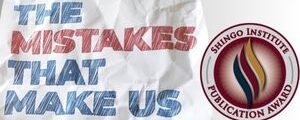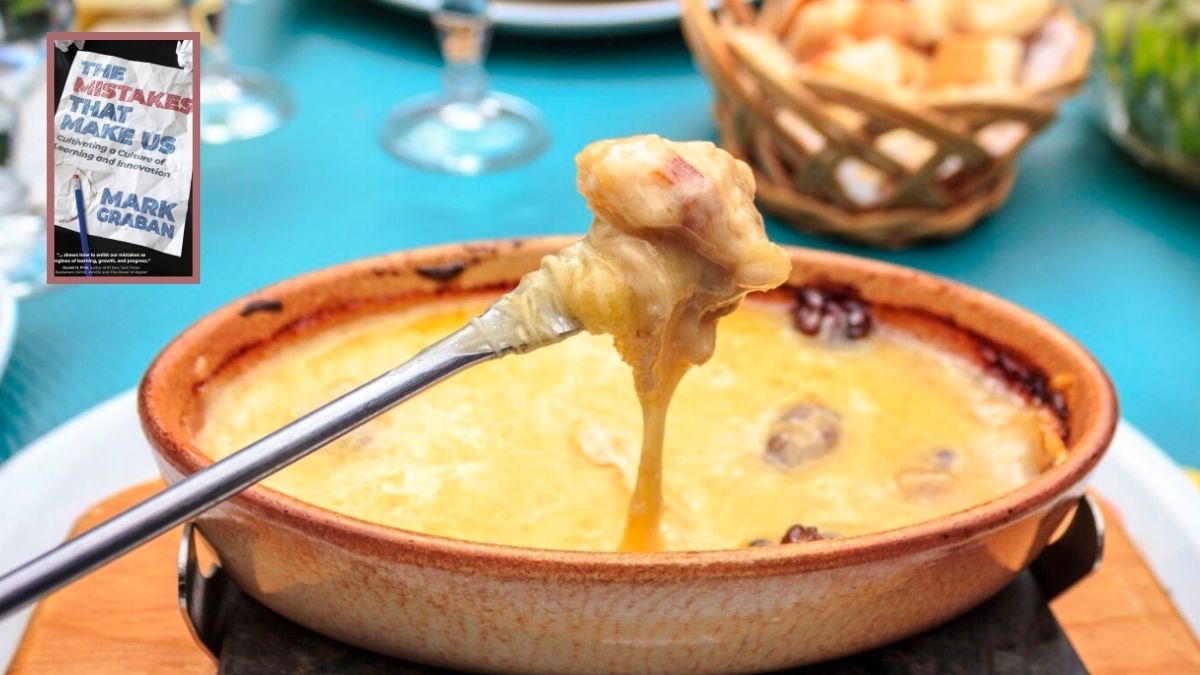I had the opportunity to dine at a French restaurant that I really enjoy in Fort Worth, Texas the other night. Their specials board listed aa new appetizer: a Duck Confit Fondue.
Cheese? Yes
Duck? Yes
Together? Yes, please!!
Duck confit is a cooking and preparation method where duck legs (or other pieces) are cured with salt and spices overnight before being cooked slowly, while submerged in fat, at a low temperature (like 225 F).
It sounds like a reliable and mistake-proofed cooking method — that low and slow approach. But it is possible to overcook duck confit.
We ordered the fondue and really enjoyed it.
The server told us a story that perked up my ears — and he had no idea about my book.
“This dish was born from a mistake.”
Wait what? I asked him to tell us more.
Apparently, the chef had been pulled out of the kitchen during the cooking process for a rather involved conversation. He lost track of time and overcooked the duck.
Rather than throw away “$300 worth of duck,” they decided to turn this mistake into something positive. and tasty.
Hence, using it in the fondue. “How to rescue that duck? We, of course, thought of fat! So fromage…”
They experimented, for sure, before putting it on the specials board. And the duck was perfectly fine in that use and plating. Chewable. Delicious. Not an off-putting texture. Oui!! Très bien!
The restaurant turned a mistake into a special appetizer — and something they think might now have a regular spot on the menu because diners have enjoyed it so much.
Bon appetit! Cheers to making the best of our mistakes.
As I wrote about in The Mistakes That Make Us: Cultivating a Culture of Learning and Innovation:
“I think companies that react constructively to mistakes are better positioned to turn a mistake into something positive.”
You can read about some of those companies in the book, including two whiskey distilleries that turned a mistake into something very positive — a new recipe or a new product.



